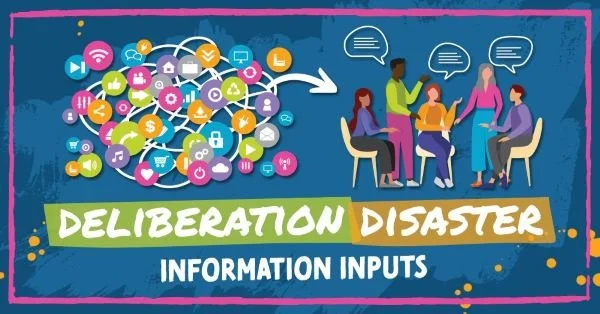Power is always at play and often in surprising and unexpected ways. It’s your job as a project manager, leader, facilitator or engagement professional to notice and foresee power problems, address and prevent power imbalance and protect the integrity of your engagement process. In this deliberation disaster we let you know where power issues tend to lie, what you can do about them, and what your role is in tackling them.
STANDING PANELS: A DIFFERENT FORM OF DELIBERATION
Have you heard about standing panels? They’re a form of deliberative engagement that can be super effective, particularly if you have a lot of different issues and topics you need to engage your community around. They’re also a really cool way of embedding deliberative practice in decision-making. Plus, they’re already happening in Australia. We’ve got the lowdown on what they are, the key considerations in planning for them and some snapshots of the two ongoing standing panels we’re facilitating in the local government realm.
WHEN DELIBERATION GOES WRONG: COMMUNICATION
Deliberative engagement aims to build trusted decisions. That’s only achievable if the people impacted by the outcome have access to information about the process. This isn’t as easy as telling your communication team to send out a media release or publishing a few social posts telling your community the panel or jury is happening. Your communication approach needs to be thoughtfully planned, aligning communication and engagement efforts and ensuring deliberative principles aren’t compromised.
WHEN DELIBERATION GOES WRONG: POOR TOPIC CHOICE
What are you asking your participants to help you with? Topic choice and how you craft the question, challenge or remit you put to your community is critical to a successful process. In this deliberation disaster, we explore the most common mistake we see made. Plus, there are free tips for selecting and communicating a topic that will result in better response rates, a more meaningful experience for participants and more useful outputs for decision makers.
UPSKILL FOR FREE WITH OUR TOP 7 RESOURCES OF 2023
Ready to put your best engagement foot forward in 2024? We have the free resources for you! Whether you’re prepping an important engagement project, have a tricky engagement problem to wrangle or just wanting to upskill, we’re here to help. We have so many free resources, it can be hard to know where to begin, so we’re sharing what our top 7 resources were in 2023 so you can see what others are reading and learning about. Jump in and let this be your most effective year of engaging yet!
TONY'S ACCESSIBILITY ADVICE + CARNIVAL WINNER REVEALED!
Did you visit our carnival stand at the recent IAP2 Conference? If so, you might feature in this post! And if not, here’s your chance to fight the FOMO and have an insight into the bean bag toss fun (and really cool dancing) that happened. We also have some super tips for you from IAP2A Chair Tony Clark around increasing accessibility and inclusion in engagement (spoiler - it’s not always easy, but progress is better than perfection). And we share our program highlights. Let’s dive in!
WORKING WITH INTERPRETERS
Engagement processes must be accessible if diverse voices are going to be included. One of the many ways we can achieve this is through the use of interpreters (both for online and face-to-face engagement). If you’re working with interpreters it’s essential to collaborate with them and think carefully about how the session will be facilitated. We spoke to Bruce Song, a Mandarin interpreter whose worked with us previously.
COUNCILS, ARE YOU READY FOR DELIBERATION ROUND #2?
There’s a new round of engagement on the way for local government in Victoria. You need to start now if you want to achieve a process that meets the requirements of the Local Government Act 2020, works around key dates and council elections, incorporates a wider engagement process and delivers useful outputs for their council and community. This isn’t easy. So, to help, we’ve created a short, free guide that you can download today. This free ebook includes a roadmap outlining timelines and phasing, biggest lessons learned from 11 local government deliberations in round one, advice from council leaders and decision makers, a guide to scaling your deliberation based on budget and more.
IT'S INTERNATIONAL FACILITATION WEEK! HERE'S 4 FACILITATION SKILLS YOU CAN TRY TODAY
Facilitation is a practice, and that means facilitators never stop learning, no matter how experienced they are. We’re constantly working to refine our skills, and we’re committed to sharing our knowledge with others. To honour International Facilitation Week, four of our facilitators are sharing techniques anyone can try out. Give them a go next time you’re involved in an interaction or group conversation, even if you don’t normally think of yourself as a facilitator.
WHEN DELIBERATION GOES WRONG: INFORMATION INPUTS
Deliberation – what can go wrong? The short answer is lots! In our second article in this new series, we tackle ‘information inputs’. We’re talking about information you feed into a deliberative process to support the deliberating group’s discussion. It’s super important to get this right and the quality of what you put in will affect the quality of what you get out. So, we’re helping you avoid potential pitfalls and learn from the mistakes of those who have gone before you. Learn what to do (and what not to) inside …















